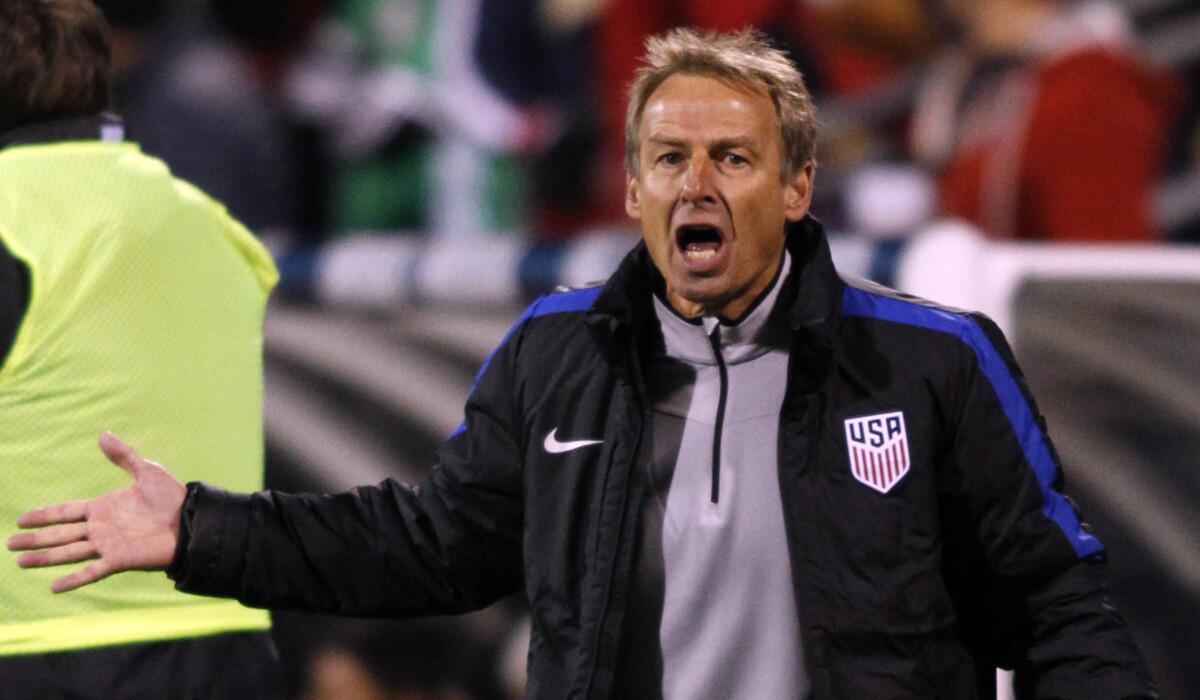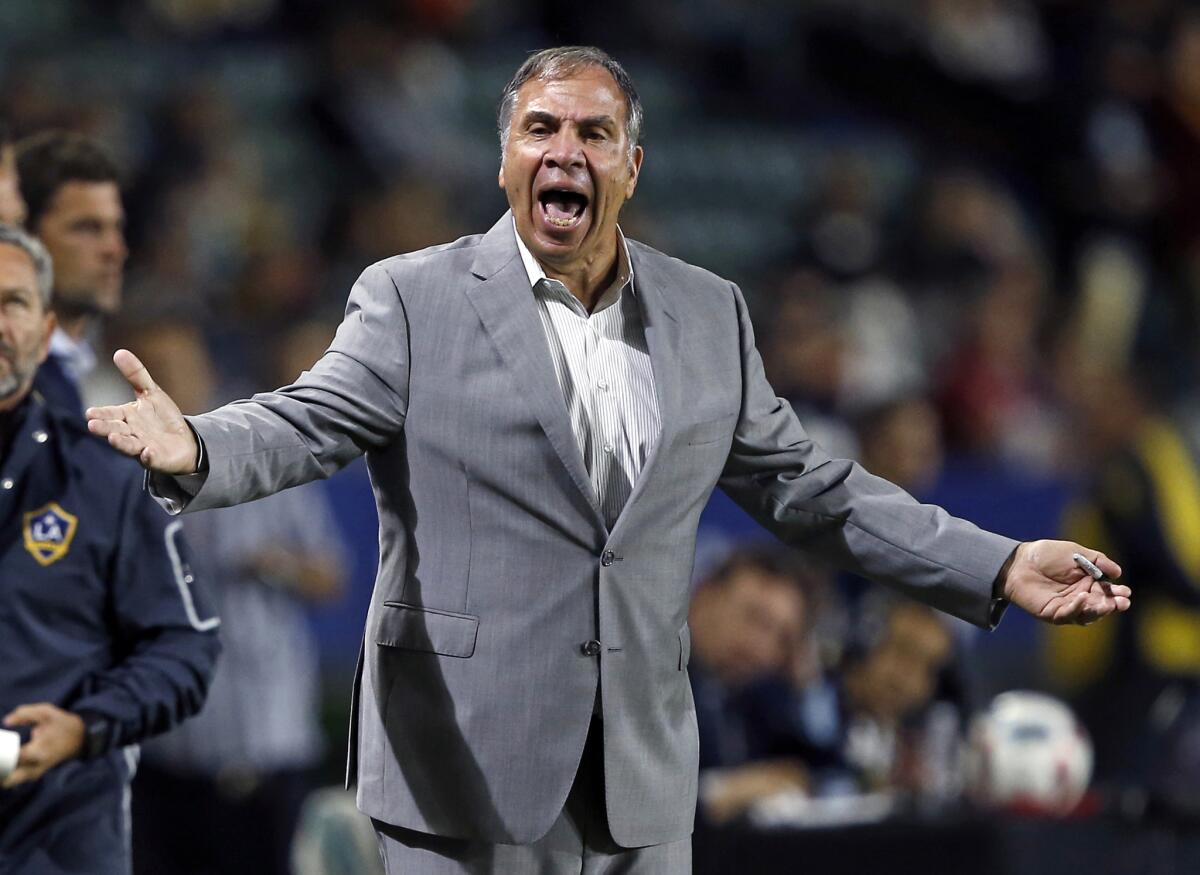USA Soccer needs to move Klinsmann out, Arena in — now

- Share via
It’s time for Bruce Arena to come back.
Not to the Galaxy. To the national team.
Taking a step back by replacing Jurgen Klinsmann with the former U.S. manager would count as two steps forward at this point.
That’s how dysfunctional the team has become under Klinsmann. The problems manifested themselves spectacularly over the last week with defeats that placed the Americans in serious jeopardy of not qualifying for the World Cup in 2018.
The losses can be defended. The Americans fell to Mexico in their most difficult home game of the final qualifying stage. The other loss came Tuesday in Costa Rica, where the U.S. has never won.
What was indefensible was how the team played — disorganized on defense and apprehensive in attack. The Americans had no identity — or, in the words of midfielder Michael Bradley, they lacked “clear ideas.” Worse, they mentally checked out in Costa Rica, which explains the humiliating 4-0 score.
It’s clear Klinsmann doesn’t know how to manage his limited personnel. Or if he does, the players aren’t responding to him.
There was a clear sign of trouble in the Mexico game. Rather than continue to utilize a four-back system that produced results in the Copa America Centenario, Klinsmann switched to a formation that included three defenders. The Americans had obvious problems with spacing, which allowed Mexico to take control of the game and take a 1-0 lead.
When an injury to a Mexican player stopped play in the 26th minute, Bradley and Jermaine Jones went to the sideline to speak to Klinsmann about switching back to the the team’s customary 4-4-2. The scene resembled a diplomatic version of LeBron James forcing David Blatt to clean his white board.
The U.S. did revert back to its old formation. Was it solely Klinsmann’s call? Maybe, maybe not. It doesn’t matter.
A necessary adjustment like that shouldn’t have taken so long to make, nor should it have required the intervention of Bradley and Jones, however minimal.
The U.S. tied the score, only to lose in the 89th minute when Rafa Marquez nodded in an open header off a corner kick. Klinsmann was quick to point the finger at John Brooks for blowing his defensive assignment on the play, but the loss was due to poor preparation. And that’s on the manager.
Brooks became the lastest on a growing list of players thrown under the bus by Klinsmann, who has rarely taken responsibility for his team’s missteps. Coincidentally or not, Brooks had one of the worst performances of any U.S. defender in recent memory during the loss to Costa Rica.
Klinsmann’s personnel options have been limited by his ever-expanding dog house, which includes the likes of DeAndre Yedlin, Sacha Kljestan and Benny Feilhaber. Feilhaber wasn’t even on the roster.
The team’s shortcomings could possibly be overlooked were Klinsmann succeeding in other facets of his job. As the technical director, he also oversees U.S. soccer’s youth program.
His effort to construct an integrated philosophy throughout the system hasn’t produced tangible results. There are even signs of regression, with the under-23 team failing to qualify for the last two Olympics.
Firings shouldn’t be taken lightly, but here the determining factor is this: Does the U.S. have a better chance of reaching the World Cup with Klinsmann in charge, or someone else?
Recent performances would indicate a change is required. And if U.S. Soccer is going to make a transition, the time to do it is now; the next qualifying match isn’t until late March.

The sensible choice is Arena, who became available when his contract with the Galaxy expired at the end of the Major League Soccer season.
Some people view him as an uninspiring choice to replace Klinsmann, even though he led the U.S. to a breakthrough by reaching the quarterfinals of the 2002 World Cup. Arena is a pragmatist, and his U.S. teams reflected that, employing a counterattacking style more dependent on organization than artistry.
When he didn’t get results — as was the case in the 2006 World Cup, when the Americans crashed out in the first round — the U.S. looked like a third-world soccer country.
But the Americans don’t have to play like Barcelona. They don’t need flair. What they need is tactical stability. With his familiarity of the qualification process and the U.S. player pool, Arena can provide that.
Follow Dylan Hernandez on Twitter @dylanohernandez
More to Read
Go beyond the scoreboard
Get the latest on L.A.'s teams in the daily Sports Report newsletter.
You may occasionally receive promotional content from the Los Angeles Times.










